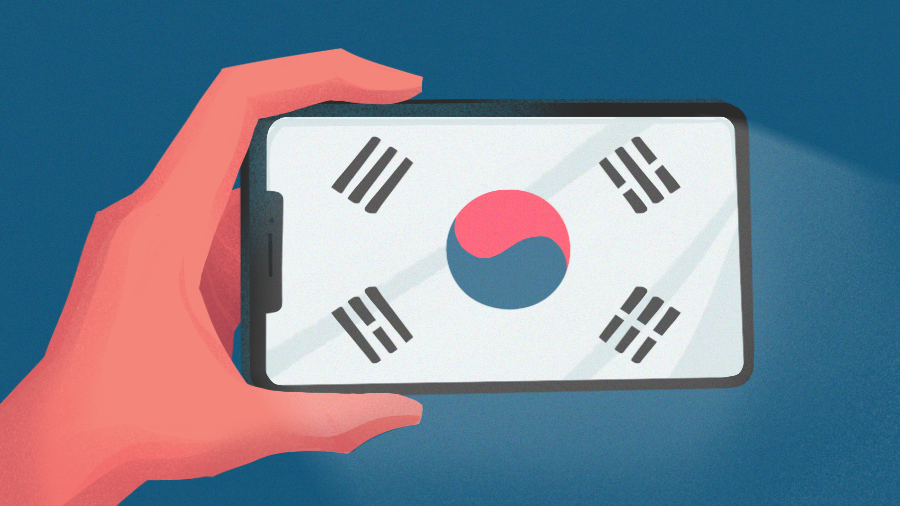South Korea is a country winning in the war against COVID-19 and U.S. startups are taking notice. As a result of its success, the country has attracted entrepreneurs from around the world who are eager to grow their businesses during the pandemic.
Subscribe to the Crunchbase Daily
Although growth for South Korea is not new–two years ago we reported that South Korea was working to establish itself as a startup innovation hub–recent reports from both HSBC and OECD have reinforced that South Korea is among the countries best positioned to capitalize on economic recovery from COVID-19.
For one economic indicator, we caught up with the K-Startup Grand Challenge, a three-month acceleration program for startups in South Korea. Organizers reported a 33 percent surge in the number of applications received for the fifth installment of its program that starts in September.
Claire Chang, founding partner of Palo Alto-based venture capital firm igniteXL Ventures, is an adviser to the K-Startup Grand Challenge and an expert on the entrepreneurial ecosystem in Korea.
“As COVID numbers surge in South and North America, South Korea’s numbers remain low, not to mention Korea’s economy has been able to stay open while many other countries’ business operations are shut down or drastically reduced during the pandemic,” Chang said via email. “If you have plans to target Asia, Korea is a great place to test the market and expand your business to other parts of Asia.”
What founders are saying
Some U.S. entrepreneurs kept their operations in South Korea after finishing the K-Startup program there last year–a wise decision as the pandemic shut down economic activity elsewhere.
One of those startups is Los Angeles-based GIBLIB. The startup offers on-demand continuing education for physicians wanting to learn directly from experts at top hospitals.
GIBLIB co-founder Jihye Shin is currently stationed in Gangnam, Seoul, along with much of the startup’s developer team.
GIBLIB’s commercialization focus has primarily been in the U.S., but after COVID-19 affected education across the globe, the company has seen a shift to online medical education for doctors and students, said GIBLIB co-founder and CEO Brian Conyer who has remained in the U.S.
“It’s been very sad to see many of our startup peers struggle during the pandemic,” Conyer told Crunchbase News via email. “We have been very fortunate to be on the benefiting side of the global black swan crisis. With most of our developers located in Seoul, we’ve had little disruption in terms of workflow and development. In fact, we are looking to expand our development team in Seoul and are actively hiring.”
John Nahm, co-founder and managing partner of Los Angeles-based Strong Ventures, said South Korea’s local startup ecosystem is benefitting from its ability to bring COVID-19 under control. Strong Ventures, a seed fund with an office in Seoul, is an investor in GIBLIB.
“The local startup ecosystem is thriving as a result of the accelerated digital adoption and transformation of society,” Nahm said via email. “You can preview in advance what a post-COVID world will look like and bring back those lessons to your local market.”
Meanwhile, Tim Marzullo, co-founder and chief scientific officer at Backyard Brains, decided to stay in South Korea after finishing the K-Startup Grand Challenge in 2019.
Given the country’s effective response to the pandemic, Ann Arbor, Michigan-based Backyard Brains was able to build a team and remain productive, he said via email. It was able to expand into elementary school education and make advances in its human physiology research tool prototype development.
With Korea’s access to fresh sea life, Backyard Brains was also able to conduct research on the nervous systems of squids and octopi, something Marzullo said could only be conducted sporadically in the U.S. while visiting specialized marine research labs.
“There was an initial unease in February, when the first cases outside of China appeared in Korea, but we decided to be patient and wait it out,” Marzullo said. “Fortunately we made the right decision.”
Illustration: Dom Guzman

Stay up to date with recent funding rounds, acquisitions, and more with the Crunchbase Daily.



![Illustration of a suitcase stuffed with money. Megafunds [Dom Guzman]](https://news.crunchbase.com/wp-content/uploads/Megafunds-470x352.jpg)
![Illustration of a man sitting on a huge pile o' money. [Dom Guzman]](https://news.crunchbase.com/wp-content/uploads/Giant_Funding-470x352.jpg)
![Illustration of agentive AI brain - Europe - Quarterly. [Dom Guzman]](https://news.crunchbase.com/wp-content/uploads/Agentive_AI_europe-470x352.jpg)
![Illustration of a guy watering plants with a blocked hose - Global [Dom Guzman]](https://news.crunchbase.com/wp-content/uploads/quarterly-global-3-300x168.jpg)
67.1K Followers